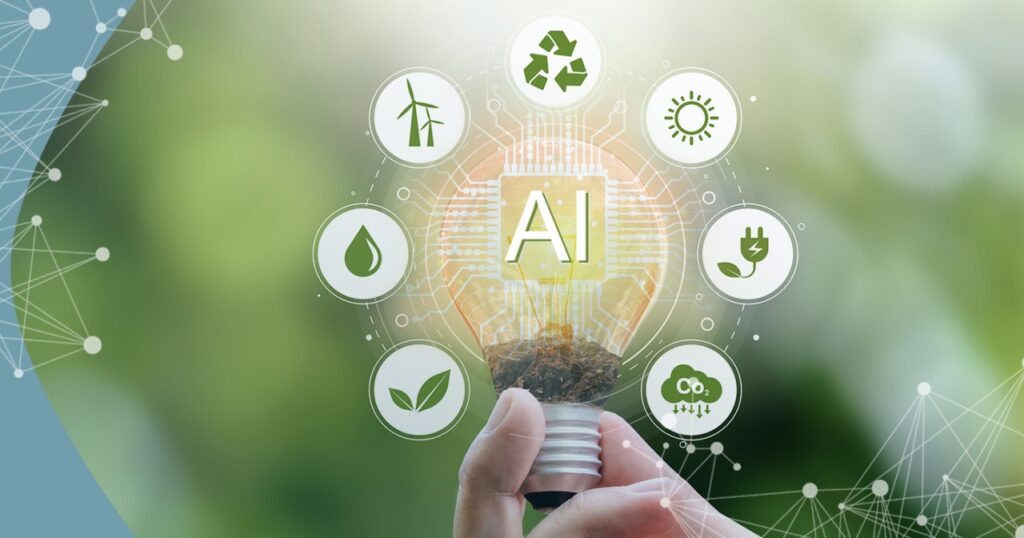
Sustainable Innovation: The Future of Data Centers in 2025
As the demand for digital services continues to grow, so does the need for data centers. These facilities, which house computer systems and related components, are crucial for storing and managing vast amounts of data. However, the rapid expansion of data centers has raised concerns about their environmental impact. In response, the industry is undergoing a sustainable innovation transformation. This blog explores the future of data centers in 2025 and how colocation services, such as those offered by OCOLO, are partnering with data centers to promote sustainability and reduce their environmental footprint. Read on to discover the exciting advancements shaping the future of data centers!
The importance of sustainable innovation in data centers
In a world increasingly reliant on digital services, the importance of sustainable innovation in data centers cannot be overstated. These facilities consume colossal amounts of energy, contributing to greenhouse gas emissions and putting a strain on our planet’s resources.
Sustainable innovation is crucial in ensuring a more environmentally responsible approach to data center operations. By embracing renewable energy sources, implementing energy-efficient designs, and optimizing cooling systems, data centers can significantly reduce their carbon footprint.
By prioritizing sustainable practices, data centers not only mitigate their impact on the environment but also create long-term cost savings. Energy-efficient designs and the use of renewable energy sources can lead to reduced operational expenses and improved profitability.
As we look towards the future of data centers in 2025, it is clear that sustainable innovation will be a driving force in shaping the industry. Organizations like OCOLO, with their commitment to colocation services, are leading the way in promoting sustainability and encouraging other data centers to adopt environmentally-friendly practices.
Data centers in 2025: Predictions and trends

As we look ahead to the future of data centers in 2025, there are several predictions and trends that are expected to shape the industry.
Firstly, the demand for data storage and processing is projected to continue growing exponentially. With the increasing adoption of technologies like artificial intelligence, machine learning, and the Internet of Things, data centers will need to scale up their capacities and capabilities to meet these demands. This will drive the need for more efficient and sustainable data center designs and operations.
Secondly, edge computing is set to become a dominant trend in the industry. As the Internet of Things expands, there will be a need for data processing to happen closer to the source, in order to reduce latency and improve performance. This will lead to the development of smaller, modular data centers located in closer proximity to end-users, enabling faster and more efficient data processing.
Furthermore, advancements in renewable energy technologies will play a significant role in the future of data centers. As the cost of solar and wind power continues to decrease, data centers will increasingly rely on clean and sustainable energy sources. This shift towards renewable energy will not only reduce carbon emissions but also improve the overall sustainability of data center operations.
Lastly, the integration of artificial intelligence and machine learning will become even more prevalent in data centers by 2025. These technologies will enable data centers to optimize their operations, identify anomalies, and predict potential issues before they occur. This will result in improved energy efficiency, reduced downtime, and enhanced overall performance.
In conclusion, the future of data centers in 2025 will be characterized by increased demand, the rise of edge computing, the adoption of renewable energy, and the integration of artificial intelligence. By embracing these trends and predictions, data centers can continue to drive sustainable innovation and pave the way for a more efficient and eco-friendly industry.
Current challenges faced by data centers
Sustainable innovation can transform data centers into eco-friendly facilities, but significant challenges remain. Rising demand for data storage strains energy resources, with traditional cooling methods leading to high energy use and carbon emissions, highlighting the need for efficient solutions where by addressing these are crucial for adopting greener practices.
While upgrading to sustainable practices can be costly, long-term savings make it worthwhile since advancing sustainable innovation in data centers requires collaboration among operators, technology providers, and policymakers to ensure progress by 2025 and beyond.
Strategies for implementing sustainable practices in data centers
Energy Efficiency
- Implement server virtualization to reduce energy consumption by running multiple virtual servers on a single physical server.
- Use energy-efficient cooling systems and optimize airflow management to lower energy usage.
Renewable Energy
- Invest in solar or wind power to reduce carbon footprints and dependence on traditional energy grids.
- Utilize energy storage solutions to ensure a consistent and sustainable power supply.
Waste Minimization and Recycling
- Introduce efficient waste management systems.
- Partner with responsible e-waste recycling companies to reduce environmental impact.
Monitoring and Data Analytics
- Regularly monitor energy usage, equipment performance, and environmental factors.
- Identify areas for optimization and energy reduction through data analysis.
The benefits of sustainable innovation in data centers
| Benefits | Impact |
| Cost Savings | Energy-efficient technologies and renewable energy reduce energy consumption and operational costs, resulting in long-term savings. |
| Enhanced Reputation | Sustainability attracts environmentally conscious consumers and investors, improving marketability and providing a competitive edge. |
| Greater Resiliency | Renewable energy sources and energy storage solutions reduce dependence on traditional grids, ensuring uninterrupted data services. |
| Environmental Contribution | Sustainable practices reduce carbon emissions, promote responsible waste management, and contribute to mitigating climate change. |
In summary, embracing sustainability opens the door to a brighter future.
In conclusion, the future of data centers in 2025 lies in embracing sustainable innovation. As highlighted in the previous section, sustainable practices not only benefit the environment but also offer several advantages for businesses and organizations. By implementing energy-efficient technologies and renewable energy sources, data centers can achieve significant cost savings in the long run. This improved profitability can fuel further innovation and growth within the industry.
Moreover, prioritizing sustainability can enhance a data center’s reputation and marketability. In a world where consumers and investors are increasingly concerned about environmental issues, businesses that demonstrate their commitment to sustainable practices will be more likely to attract and retain customers, gaining a competitive edge in the market.
Therefore, it is clear that embracing sustainable innovation is not only beneficial for data centers but also essential for building a brighter future. By investing in these practices, data centers can position themselves at the forefront of the industry and drive positive change for both the environment and their bottom line.
In our upcoming blog posts, we will dive deeper into specific sustainable innovations that data centers can embrace to further their commitment to environmental stewardship while staying ahead in the ever-evolving digital landscape. Stay tuned and follow us to our LinkedIn account for more insights and inspiration on how data centers can continue to shape a sustainable and successful future.
You May Also Like
News: A $500 billion investment in US AI infrastructure has been announced.

